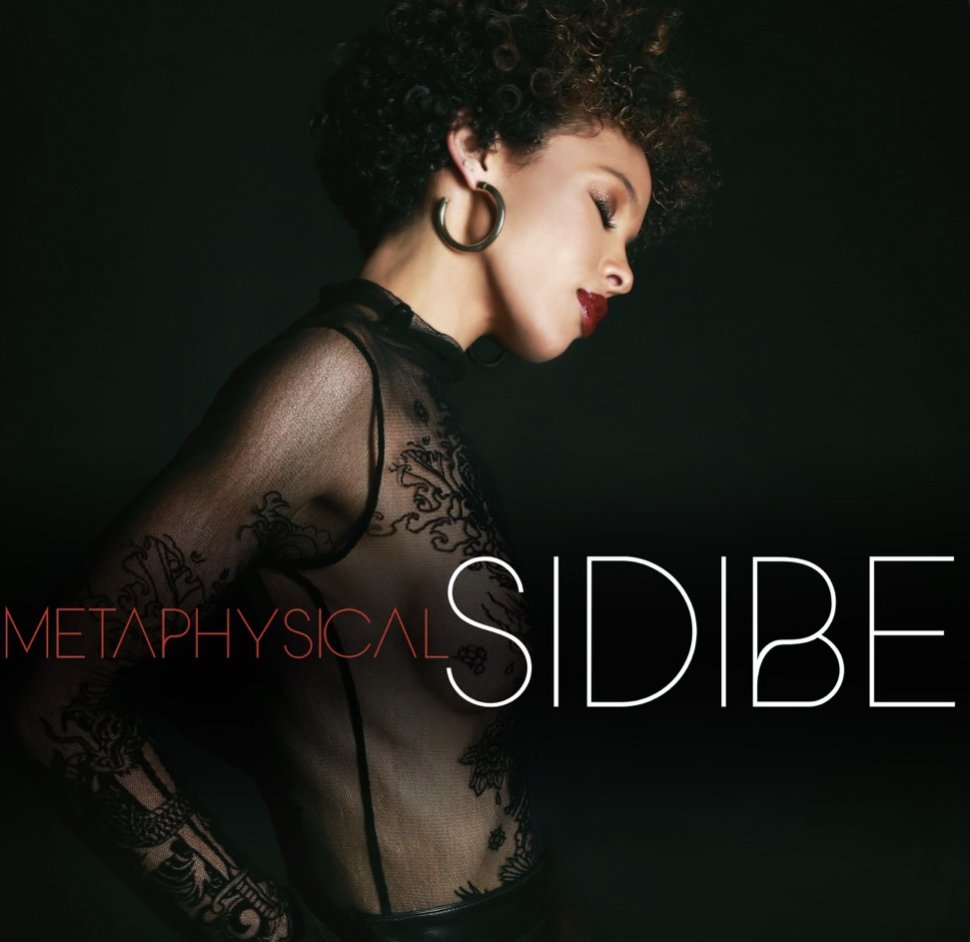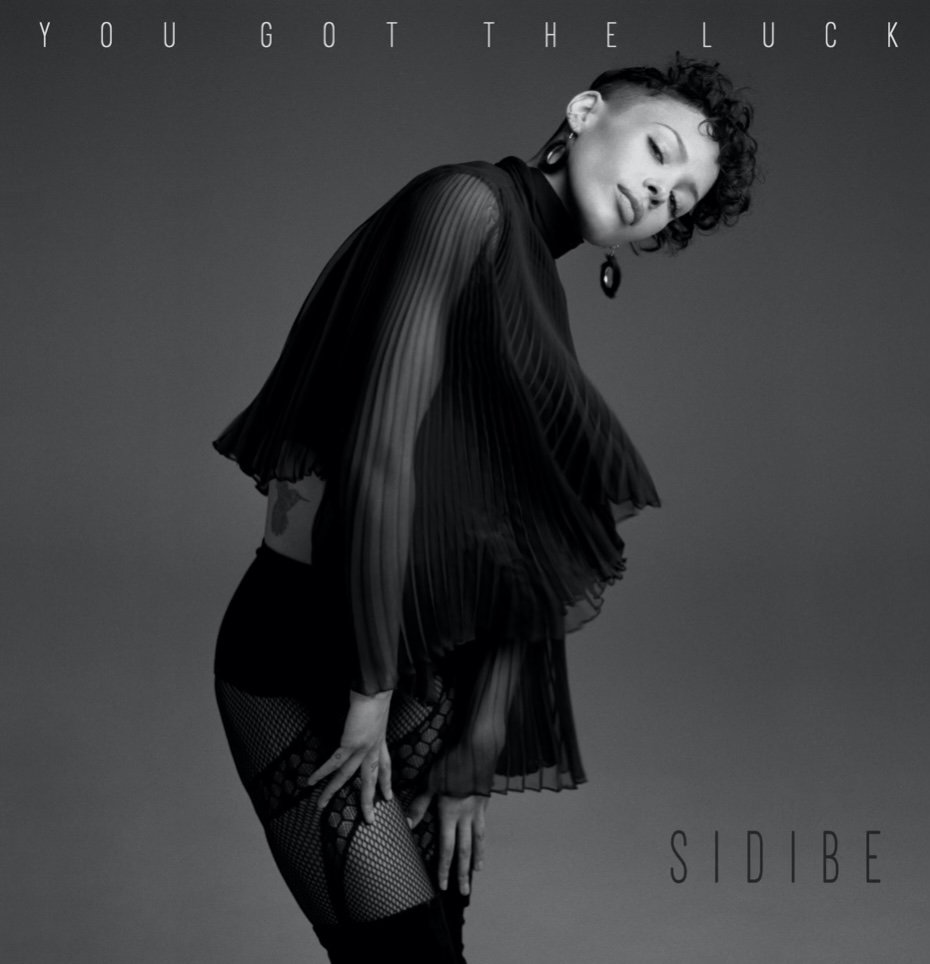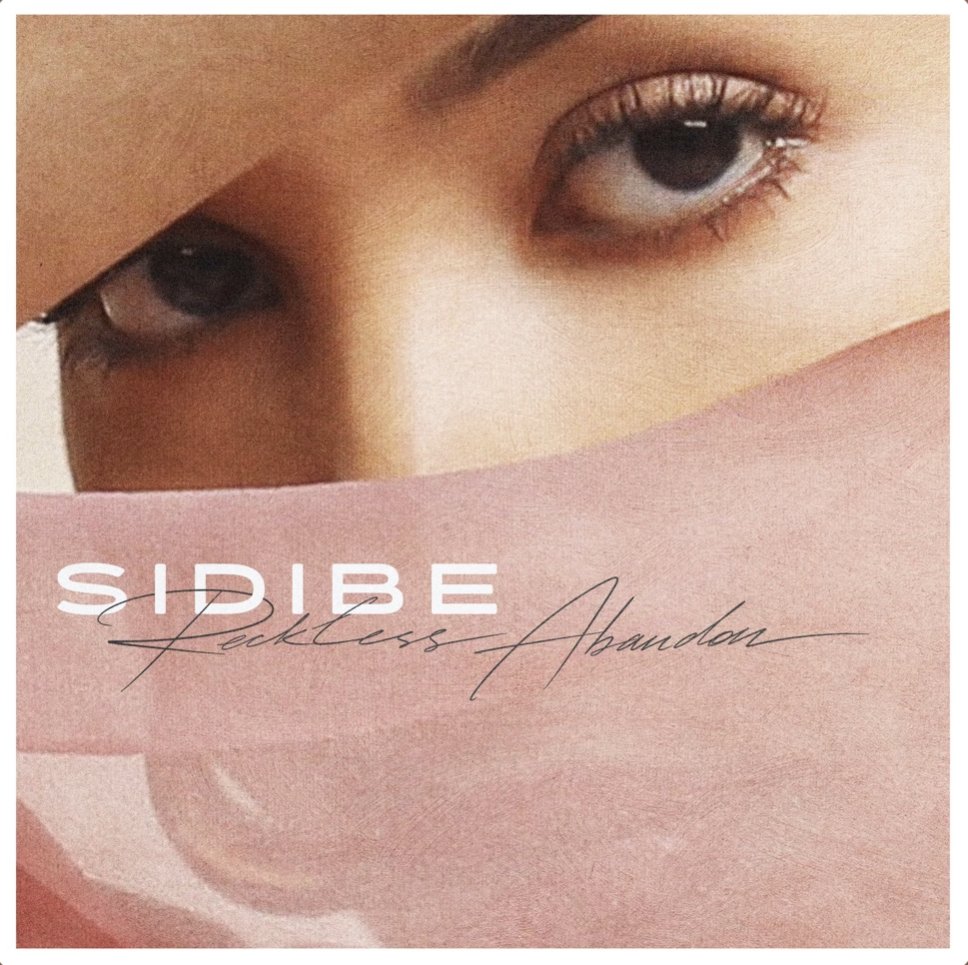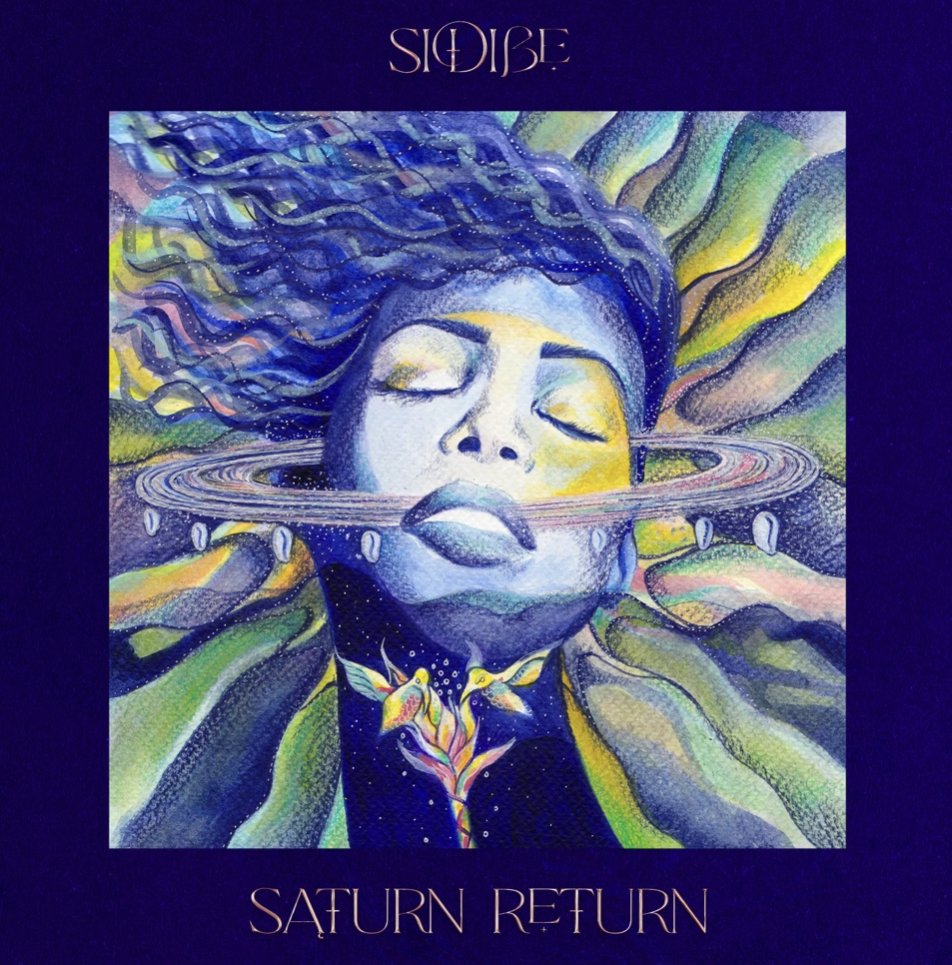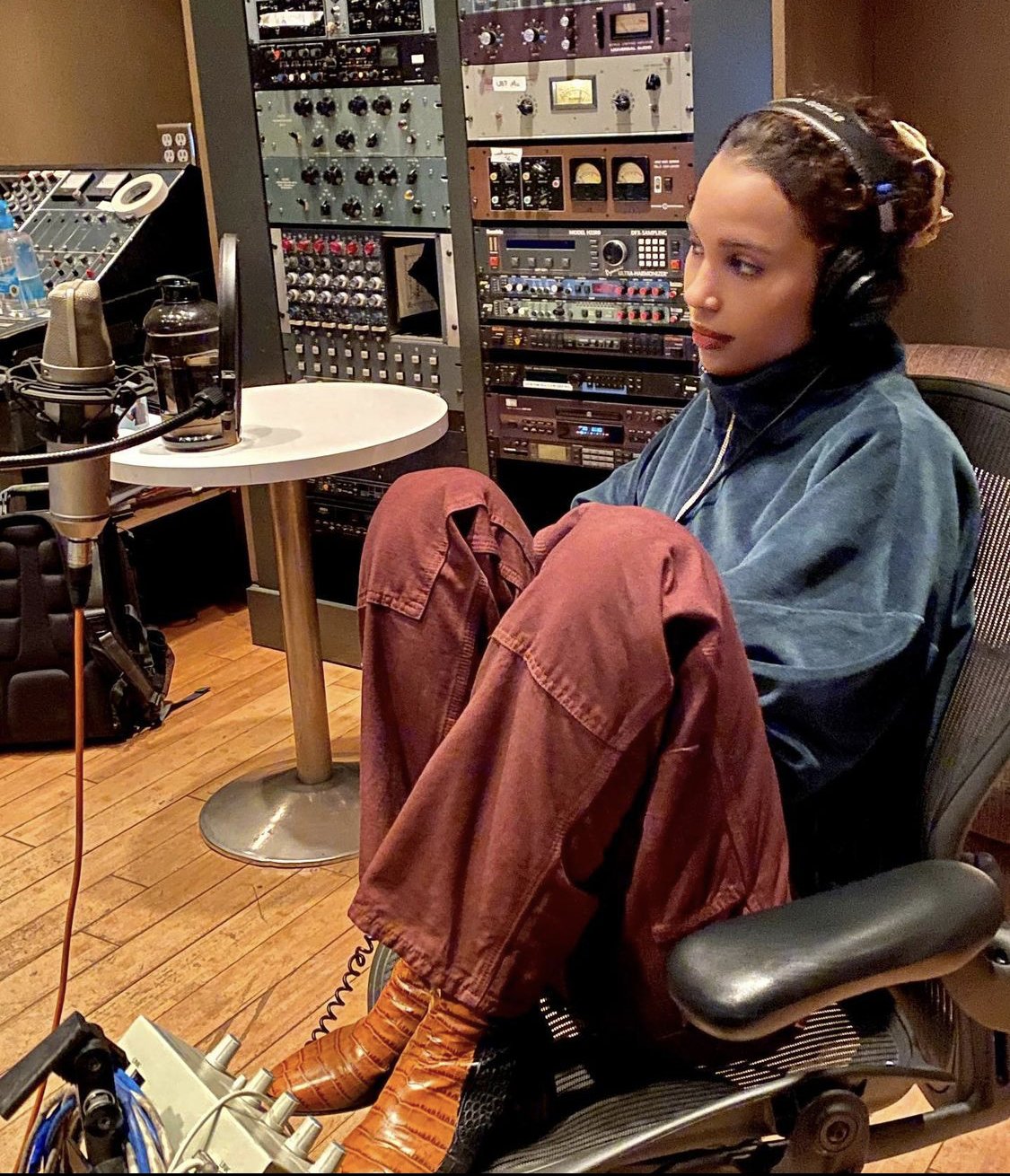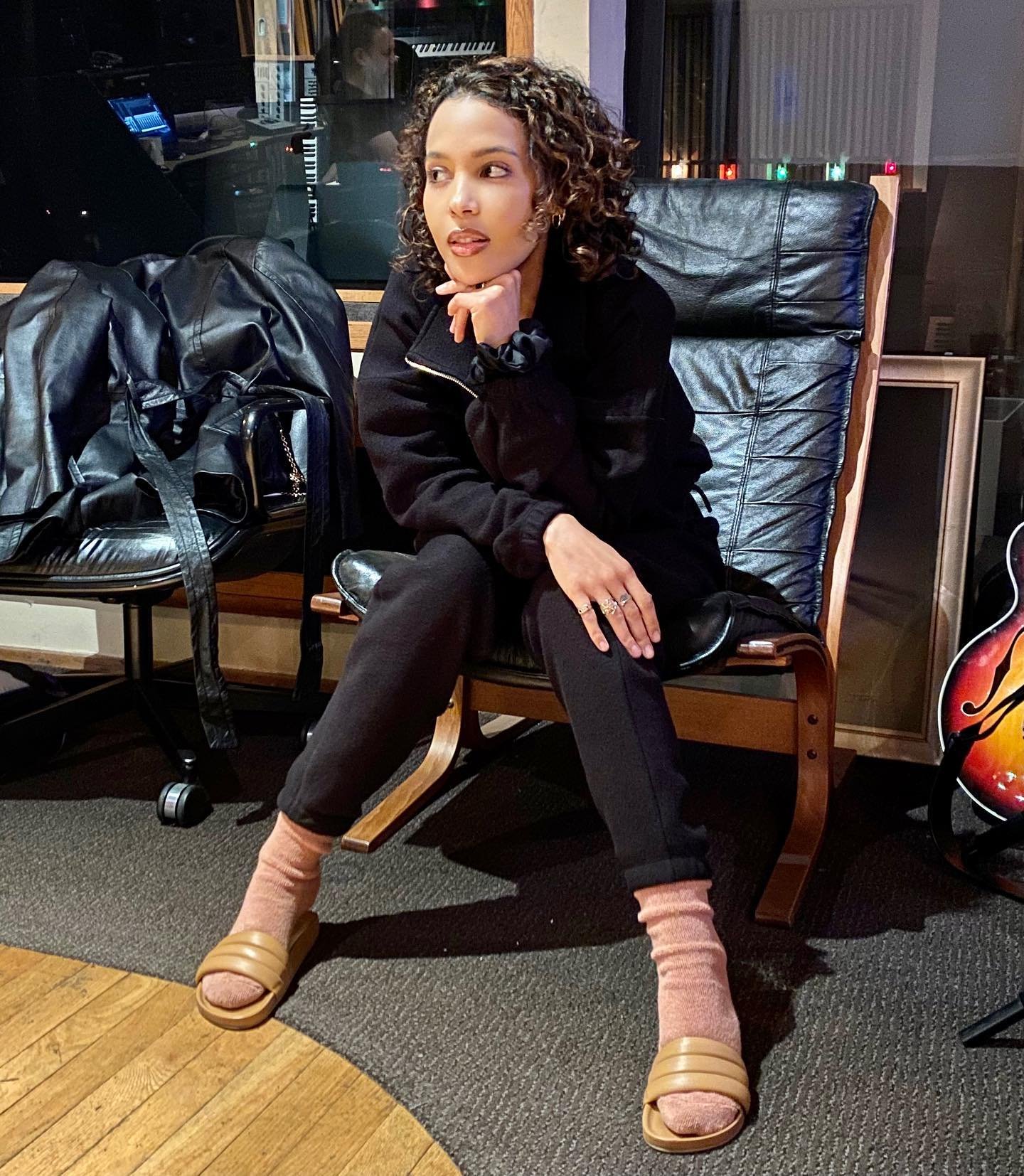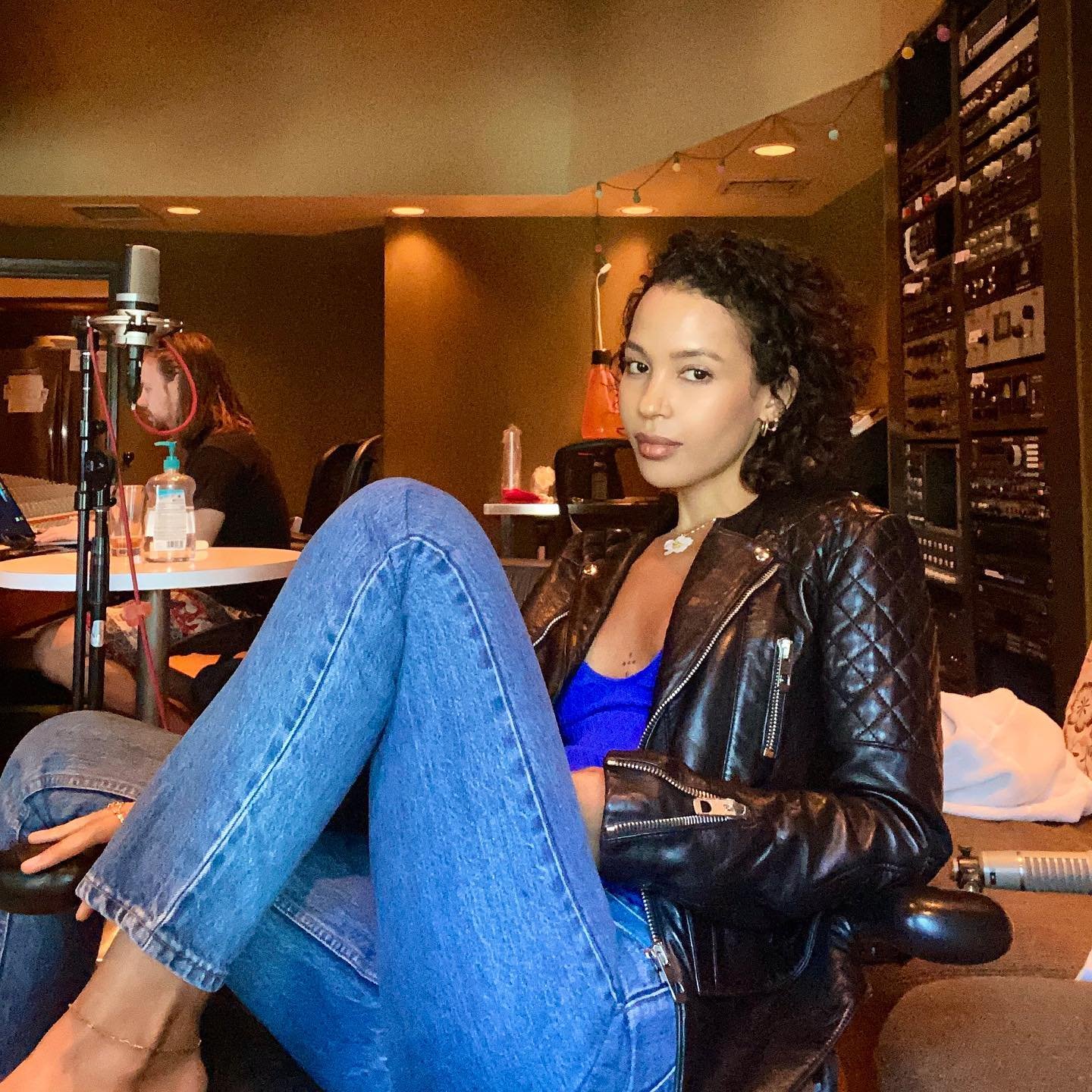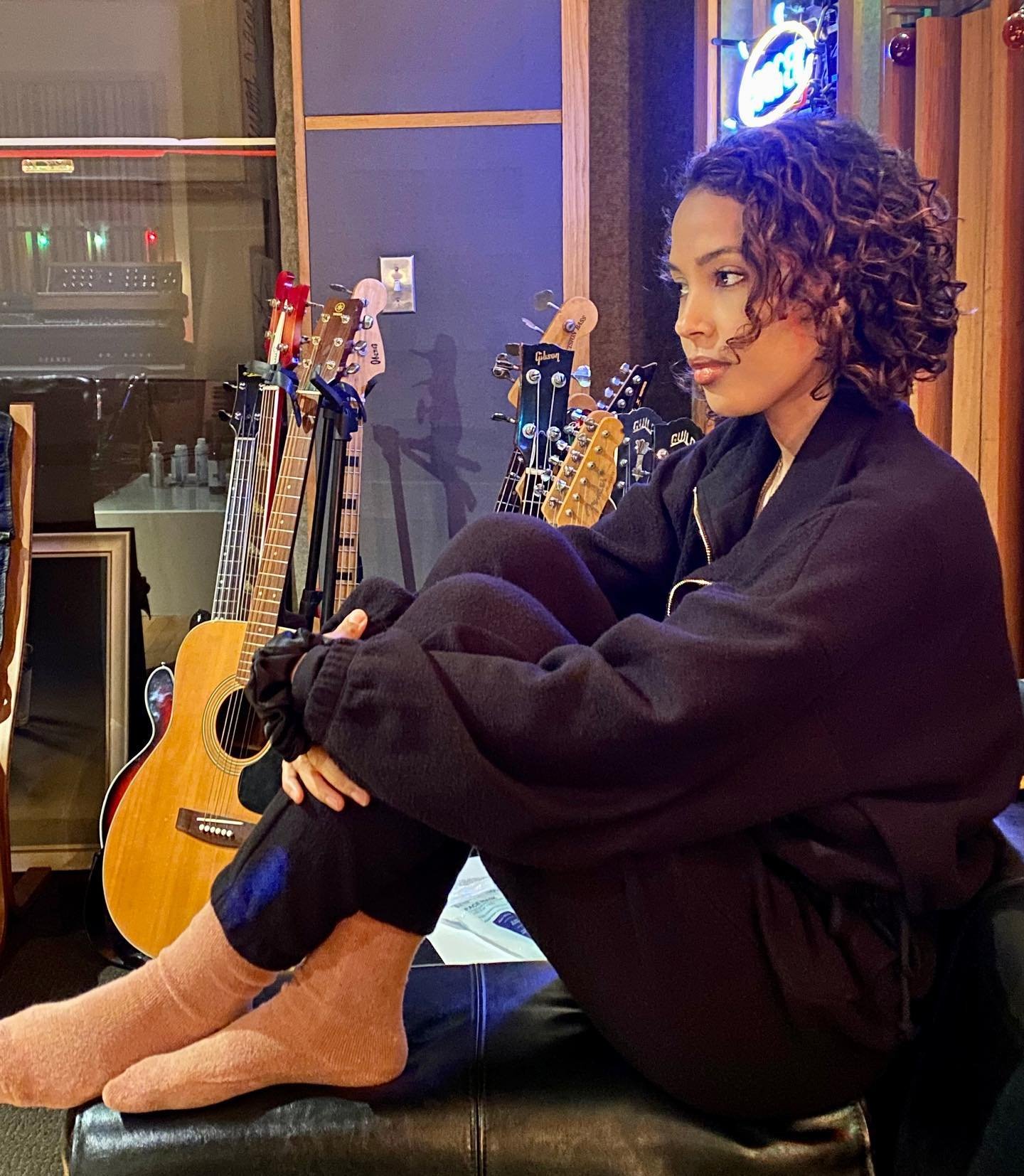Interview: Sidibe
Illustration by Malaaya Adams
It’s an early afternoon in Los Angeles, and Sidibe is at home sitting in a chair with her legs folded. She’s in front of her computer for our Zoom call, but in the background you can see her acoustic guitar and a collection of records, a collection representative of her broad musical palette, something she’s proud of. She’s wearing sweats and her is hair down; she seems at ease, exuding a level of perspective and assuredness that can only come from experiencing life.
Earlier this year, Sidibe released her EP Saturn Return, a project that tells a story of death and revival; of new beginnings and possibility; of love and longing, and it’s all set to the sound lush drum machines and dreamy synthesizers, a sound she and her longtime producer and collaborator Nico Stadi have come to be known for.
Following the release of her latest project, I got a chance to talk to the singer-songwriter about her new EP, her childhood performing in talent shows, working with Herb Alpert and Warryn Campbell, and a bunch more! Here’s our conversation:
This interview has been edited for length and clarity
Stanley I've been going through some of the interviews you've done over the past few years, but, you know, I'm still interested in learning more about your upbringing, and more specifically, the moment when you knew you wanted to do music?
Sidibe Honestly, it sounds so cheesy, but singing is really the only thing that I’ve ever seen for myself. I know some kids have all these different dreams that might change. But for me, it was just really evident that singing was my thing. I really have been singing for as long as I can remember. I started writing songs at five, I have videos of me writing songs. And so, music has just always been my thing, there hasn't really been anything else.
I did my first talent show in this little town in Utah. I used to live there on a reservation. My mom's a wildlife biologist for the government and so we moved around a lot. I didn't have a stage mom, but she knew that I had a gift. I had one of those little “woman” voices, and so it was very obvious that it was my gift. Recognizing this, my mom would put me in little talent shows just for the experience.
Stanley What was being in the talent show in Utah like? How did the crowd respond to you? How did it make you feel?
Sidibe I sang Colors of the Wind, of course, from Pocahontas. And I think I dropped the mic at the end as I left [laughs]. But I mean, I think I won, even though it was all ages. And I loved it. I loved that it felt natural. When I was seven, I won the Mississippi State Fair Competition where I sang Somewhere Over the Rainbow.
I remember after I won, this guy came up to me and he was this old white cowboy. He gave me money and he said, “don't ever perform again without getting paid.” That just left an impression on me like, you know what? You're going to get paid for singing. I like to go back to those moments.
I also grew up singing in church - so I really reflect a lot on those moments too, because I feel like that's the essence and the purity of performing and sharing. You don't have as much at stake, there’s not as much ego, and there isn’t anything to prove. You're just singing for the sake of it because you have a gift. There's so much less baggage and stuff at that time, and no expectations. And so I always try to reflect on that feeling of joy and just singing for the hell of it.
Stanley That's really incredible. And I even think about how talent shows aren’t as common anymore. Maybe the internet has filled that space. But there was a long period, especially in the late 80s and 90s, where a lot of artists cut their teeth at talent shows.
Could you talk a little bit about some of the music you were listening to growing up that's been influential for you?
Sidibe Yeah, growing up I definitely had a very eclectic selection of music and not necessarily what you hear me producing now. A lot of Joni Mitchell, a lot of David Bowie, Annie Lennox, Neil Young, Sting. The Bodyguard soundtrack, that was huge! We got the CD at Goodwill. That soundtrack was massive in my household. And then there was a lot of traditional West African music and Deep Forest which is this electronic style of world music where people were sampling field recordings and putting them into house tracks. It’s very ambient. Those are my earliest memories.
The jazz singers like Sarah Vaughan, [Ella] Fitzgerald, and Dinah Washington were really influential. Not a lot of popular and contemporary music influences, I guess. I really did not like pop music at all. I was really into jazz and classic rock. And it wasn't really until later, especially when I got my first record deal, that people started making Sade comparisons and I didn't even listen to her at the time. I was just kind of like, oh, that's cool. And of course, now I love her. Naturally, my repertoire of music is so much wider and more expansive now, but those were some of my initial influences.
I love Michael Jackson. I love him. I love the element of fantasy he brings to his music and I love his voice. I often reference him. Stevie Wonder and Joni Mitchell to me are the greatest - they’re living legends. Joni is just an amazing poet, and harmonically, she's incredible. They all really created their own worlds. Prince wasn't somebody that I really grew up listening to, but I did later on. And when he selected my song for his playlist, that’s when I got into huge obsession mode.
Growing up, I didn't watch a lot of TV…We had one, but [my mom] told me it was broken... The only thing I could watch were Disney movies, so that became a huge influence for me.
Stanley: I love your songwriting. You have a really distinct and vivid way in which you write, and I’ve heard you describe your writing as being autobiographical.
I'm curious to know a little bit about your development as a writer broadly, but as a songwriting in particular. Were you an avid reader growing up? What contributed to your writing?
Sidibe: Oh, yeah. Writing’s something I always feel I don't really give myself as much credit as I should, which could be a good thing. But you know, I listen to Joni Mitchell and I think, oh my God, this woman is a genius. What I’m doing is child's play compared to her stuff [laughs].
But I've always been writing songs. Growing up, I didn't watch a lot of TV. My mom didn't want that. We had one, but she unplugged it and told me it was broken when I was a kid. The only thing I could watch were Disney movies, so that became a huge influence for me.
I wrote and recorded my first song when I was 12. It was about a girl who committed suicide, which is really interesting because I wasn't suicidal at the time, so I don't know why I wrote that song.
I would read in school, but I wasn't a huge reader. I was a 4.0 student and really serious about school, mostly because my parents encouraged that, and having an African Muslim father, too, I’d better be good at school. But I'm a huge reader now, I'm always in a better place when I'm reading.
My songs definitely come from my life experiences. I'm not really somebody who makes up stories, although I'm definitely down for that and I can certainly embellish. But I find that I often have writer's block when I'm not just being true to myself.
Something that's really important to me, and it’s becoming even more important is just keeping it…and I hate to use this word, but, positive. Well, I guess keeping it life affirmative. Some of my favorite writers have been able to do that – they just make you feel connected to them and their stories. You feel so connected to them through what they write and it makes you feel everything is going to be okay.
But life is still beautiful and there's still reason to create music and create beauty. And not in the superficial way. I feel beauty has a really bad rap right now. For me, that word, the idea, is about every type of beauty. Beauty is life and it’s really important to me that I can use my music to create a space where people can feel there's meaning and that everything serves a purpose.
Stanley I love that idea of life affirmative music. I wanted to talk a little bit about Saturn Return, but I'm curious to hear you talk about it in the context of the broader catalog of music you’ve released. How do you see Saturn Return in relation to the other music you've made?
Sidibe I kind of feel like the first two projects were about getting my feet wet. You Got the Luck was a really important project for me, just getting people's attention. That was a little bit more standard R&B, Soul. And then I followed that with Reckless Abandon, which kind of has some elements that are more Pop, and also has a song like Place For You and I which is a not very pop song [laughs].
Nico Stadi is my producer and has been with me since the very beginning. From the time we started working together, it was really important to both of us that we create music that was cohesive but didn’t attach itself to a specific genre. You can hear all the different elements in Metaphysical and Soul Siren - there are House tracks, and then there are Future R&B tracks, and there are some jazz elements, too.
Saturn Return is sort of a combination of all of that. It's definitely an attempt at being a little bit more refined and trying to highlight how commercial we can be. It's a culmination, a bit of everything and definitely a continuation of where we started. I feel that with Reckless Abandon, we were just trying to be as Pop as possible, while again staying true to who we are.
I think musicians can hear all of those tasty elements in there. On Saturn Return, First Water is a transition into my next project that I'm wrapping up now, which is really exciting because this project is really different, very different from anything I've done, but it will still feel familiar. We're committing to a certain sound and First Water has elements of the next project. So when you hear it, if you listen to it in order, it will flow perfectly into the first song. I feel this next project is honestly the best stuff I've written. The songwriting, the messaging and style are all going to new and interesting places.
Stanley First Water is my favorite song from Saturn Return! Could you talk about the title of this project – “Saturn Return” – and what it means?
Sidibe I decided to call it Saturn Return just because it's been an intense period in my life. It was a hard time for me - a time of death and rebirth. I feel songs like Ready Enough encapsulate that idea. Then in the last song, First Water, I say “beauty is forever.” So, it gets at this idea that everything will change again. Life and death, and grief and joy -- just all of these paradoxes of life of wrapped in a project. I have the romantic kind of flirty song like Feelin’ 4 U and then there are the songs like Ready Enough and Wish We Weren’t Friends that get at that conflict I mentioned. This EP was a combination of so many different life experiences that happened within this period of my Saturn Return. I feel like it’s a time a lot of people can relate to.
…then that flowed into Devin. And I was like, “Oh my god, you reached out to me on Instagram!” And I was like, shit, this is his music? This is crazy!
Stanley Ready Enough features Herb Alpert and Devin Morrison. How did you all meet and also how did the song come about?
Sidibe It’s a lot of random pieces that all came together. First, Devin reached out to me on Instagram. I'm really bad at DMs and connecting that way - I get really overwhelmed. But he had reached out months before I really knew who he was. I was at the studio with Nico and we were listening to Onra and then that flowed into Devin. And I was like, Oh my god, you reached out to me on Instagram! And I was like, shit, this is his music? This is crazy!
I responded to him saying how much I loved his music and wanted to work with him. We got to know each other for maybe a year or so before we ever wrote together. We started working on Ready Enough in 2019, and I put down some melody ideas. I think in one of my ad libs I said “ready for love...” And that was it. We just left it at that until I picked it up again in the spring of 2020.
By that point, a lot had already happened. The world changed. And I was really frustrated with that song the whole time because I could not decide what it was about. I kept telling myself that I actually don't like this line. I can't…I'm not ready for love. I don't feel like I want to be in love right now. I just felt it didn't resonate with me. I wasn't connected to it. But I went hiking and it just came to me - I'm ready, I'm ready enough. Everything is right here, and if you just listen and understand that you have everything you need, that vision will come to you and things will fall in place, but you can't force it. We sent it to Devin, and what he sent back was better than I anticipated!
With Herb [Alpert], my manager actually works with him. And so I told my manager “hey, you know it would be kind of cool if Herb would be down to play on this…” I mean, he’s so prolific and such an important person in the history of music. And through my manager I learned that he still practices every day. He's just a cool person. They asked Herb and he said, yes, which is really cool.
Herb’s solo just flowed so perfectly. You have this very tasteful, minimalist solo with Herb, and then you have this crazy shredding solo on the keys from Devin. It's a perfect match.
Stanley Warryn Campbell’s not on this project, but you’ve worked with him in the past as well. What’s it like working with him? He’s a legend!
Sidibe Honestly, Warryn is one of the most magical people I know. He's one of my best friends, and maybe you wouldn't pair Warryn and I together as dear friends, but we are. Side note: the car that I'm driving in the video for Ready Enough is his car [laughs]. But yeah, he's the nicest, most authentic person; he’s unbelievably generous and unbelievably humble.
We actually did a rock project together, and I released two of the songs – Bad Man and Now We’re Making Love – on this exclusive Japanese release. We made a lot of songs together for that project. Maybe one day we'll release them. But Warryn is the truth. And he works with so many talented, amazing people. He’s just one of my favorite people to just be around.
Stanley If anything, what do you want people to take away from this project?
Sidibe I feel people are already taking away from it what I wanted. People have said it's very soothing and calming; that comes up a lot. For a while, I didn’t like that – being “calm” and “soothing” – I was like, does that mean it's boring? But then I think about the artists I love and how people say that about Sade. I understand now what that means, and I love that - because that's how I want to feel right now. I need some soothing and some calming. And so if this project makes people feel that way, that's the best thing I could hope for. Just offering a place of refuge and again, a place of beauty. I want them to know all of that's within them.



